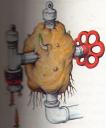The Antiquarian
“In every New England town library, there is likely to be an ancient Puritan virgin, shriveled and dried in the snows of sixty Massachuetts [sic] winters and suitably shrouded in black bombazine, who has been at work for the past twenty years on the story of her home town from 1633 to 1933, when Franklin Roosevelt was inaugurated and history came to an end” (Fischer, David Hackett. Historians’ Fallacies: Toward a Logic of Historical Thought. New York: Harper, 1970. P. 141).
I’m currently writing on speculative and analogical history–histories of the far future and how they best tell the story of their present. Hackett Fischer and I thus disagree on a lot, but I’m very interested in reading Housman’s work on Manilius, said epic work described in this LRB piece by Frank Kermode. (I also want to read the letters to see what Housman thought of Joyce and Proust in particular.)
I also taught Wordsworth today and can’t but notice this priggishness:
“And yet historians who justify their work as ‘pure research’ deliberately avoid it [the question of purpose]. Their lives are wasted in aimless wanderings, like those which Bertrand Russell remembers from his childhood, ‘In solitude,’ he writes, ‘I used to wander about the garden, alternately collecting birds’ eggs and meditating on the flight of time.’ When grown men carry on this way, the results are not amusing but pathetic.” (319)
Could a Critics’ Fallacies be written? (Or, perhaps more likely, a Literary Historians’ Fallacies?) Does anyone know of likely efforts?
UPDATE:
Christgau on Wish You Were Here: “No dumb tribulations-of-a-rock-star epic here–the dedication to long-departed crazy Syd Barrett gives it an emotional resolve that mitigates what little self-pity lyricist Roger Waters allows himself.”
Christgau on The Final Cut (which I listened to on a ferry): “Though I wish this rewarded close listening like John Williams, Fripp & Eno, or the Archies, it’s a comfort to encounter antiwar rock that has the weight of years of self-pity behind it.”
